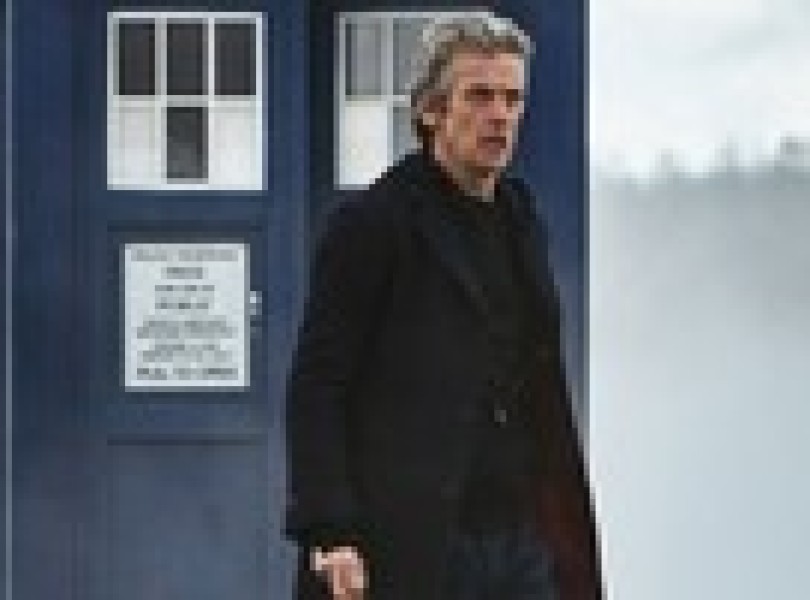Knowhere comes alive.
Warning: full episode spoilers follow.
Nearly a month after airing the pilot episode of Guardians of the Galaxy, Disney finally delivered the second half of the premiere tonight in the form of “Knowhere to Run.” Unsurprisingly, little changed in terms of the show’s execution or overall quality. The show clearly has potential to succeed where other animated Marvel TV projects have faltered, but to do that it has to stop clinging so fiercely to the Marvel Cinematic Universe.
Marvel’s Guardians of the Galaxy: “Road to Knowhere” Review
That’s easily the most frustrating aspect of the series so far. The writers and animators have a whole galaxy in which to play (it’s right there in the title) yet they seem afraid to include a single scene that doesn’t call back to the movie in some form or another. The setting remains confined to the Knowhere space station or one of Thanos’ ships. The plot is once again driven by a cosmic MacGuffin. Instead of The Orb this time, it’s the Cosmic Seed/Crypto Cube.
I get that Marvel is in a somewhat tricky situation with the franchise. The movie was wildly popular, but the average TV viewer has no exposure to the franchise beyond that. The show has to appeal to what casual audiences (especially kids) know and love and build an audience before trying to blaze new ground. Even so, there’s nothing to be gained from crafting something this slavishly devoted to a specific incarnation of the source material. It’s clear the show wants viewers to believe it’s a direct sequel to the movie, and only a few stray details (like Korath still being alive) serve to indicate otherwise.
And as I discussed in my review of the premiere, one of the big problems with that approach is it only calls attention to the ways the show doesn’t quite replicate the charm of the movie. The humor is a lot more broad and simplistic. Sure, the show is skewing younger than the movie, but there are any number of cartoons on the air right now that prove you can be family friendly and clever at the same time. In general, the characters are less nuanced. Gamora remains the biggest offender. There’s little sense of tragedy to her portrayal here, as she basically alternates between being annoyed by her teammates and itching for a fight.
We want to hear it.
The spotty voice acting remains a problem. Rocket, Groot, Drax and Cosmo are all fine. Unfortunately, Will Friedle’s Star-Lord sounds too young and nasally and Vanessa Marshall’s Gamora is too flat. This episode offered a bit more of Thanos, and there’s a certain sense of power and menace that’s lacking in Isaac Singleton, Jr.’s performance. On the flip side, the animation quality continues to impress, with this show offering a more lavish take on the Marvel Universe than its various sister series. Whether that trend will continue beyond these initial two episodes remains to be seen.
But to be fair, this episode does make a few in-roads as far as fleshing out the characterization. There was a bit more emphasis on the team as a dysfunctional family unit. Drax was probably the most improved compared to the first episode. His somber reflection on his the hologram of his murdered family was far more effective than the nonstop stream of one-liners about craving revenge. Plus, the line about wanting to meet kangaroos tapped into the movie’s hilarious portrayal of Drax as a man utterly immune to humor or sarcasm. That’s something that was sorely lacking in the premiere. Star-Lord also had a slightly better track record when it came to his humor.
It’s telling that the most memorable moments in this second episode are those that do manage to veer away from the familiar formula. Take Cosmo, for instance. This is a character that only appeared via a brief, silent cameo in the film. Yet here he’s not only talking (well, “talking”), he’s quickly becoming the unofficial sixth member of the team. Cosmo has a really fun dynamic with the Guardians (particularly his new rodent friend), and he’s proof that the writers are drawing at least some inspiration from Dan Abnett and Andy Lanning’s seminal GotG comics.
There’s also the subplot involving Star-Lord discovering his Spartax heritage. While more a seed for future episodes than something at the forefront of this conflict, it’s still interesting to note that this is the one fundamental area where the show looks to diverge from the movie. Director James Gunn has confirmed that the MCU is going to diverge from the comics in terms of the identity of Peter’s father. But it looks as though the animated series will be sticking to the comics in this regard. I’m really eager to see how future episodes handle the Spartax revelation, as it really seems like this will be the area where the show finds its own tone, voice and direction.
The good news is that the second episode of Guardians of the Galaxy improved a bit on the first. More screen time for Cosmo certainly didn’t hurt, but it was also a matter of the show tapping into the group dynamic and their dysfunctional but close bond a little more. The show continues to frustrate in just how aggressively similar it is to the movie, but with the groundwork now laid and the promise of Star-Lord’s heritage being a major focus going forward, hopefully the show can begin to define itself on its own merits.









